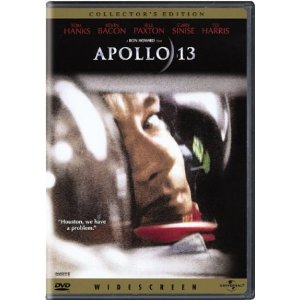Over the last year I've become increasingly interested in intentionally shaping my information intake. We have access to much more material than we can ever process, from breaking news, blogs, books and magazines. That's been true since the advent of the printing press, but the internet has accelerated that process exponentially. Just randomly clicking on whatever catches my eye isn't enough; I want a process that helps me prioritize so that I have both a solid grounding in what's going on in the world -- news, politics, science, international development -- but still gives me time to get more in-depth. It's a constant struggle where intellectual curiosity is both your friend and your enemy.
This post is my first attempt to audit my personal information flow. For the most part, I'm excluding things my friends recommend (by email or through Facebook), which typically go to the top of my reading queue. And I don't yet have a very systematic process for selecting which books to read. I do keep a list of books I want to read in a Google doc. When someone recommends a book, I add it to this list, and then when I want to buy or borrow a book, I'll usually scan the list to ensure I'm not forgetting something that I want to read more. Also, since I'm a grad student, readings for school - classes, seminars, and a work-study project - are taking an increasing amount of my brainspace, but I don't have much control over that.
That excludes a good deal of reading, but still leaves a lot in, mostly websites and blogs. My RSS reader of choice is Google Reader, and I use it a lot. Some stats for the last 30 days:

That's a lot of reading! Of course, not everything "read" was covered very thoroughly -- it's more likely an indication that I either read it, or saw enough of it to deem in uninteresting and worth of being marked read. Reader also informs me that since June 19, 2007, when I started using Reader, I've read a total of 61,602 items.
Over time I've tried to get more organized and disciplined, so that now I prioritize items as follows:
1. Highest priority: friends' shared items. Google Reader tells me I currently follow 80 people, which means any items they choose to "share" in Reader will show up in my feed. However, only about a third of those people post regularly (more than monthly?) and I think on average I have about 10-15 items shared by friends in any given day. Maybe a third of these items are from feeds that I'm already subscribed too. The others give me a healthy - though small - dose of freshness (because I wouldn't normally find those items), especially in terms of pop culture.
2. Next priority: aggregators. This has been the most important and difficult category to refine. I'm trying to locate RSS feeds that give an extremely broad overview of news and commentary, but keeping the total number of items to be read reasonable. In other words, if I read the aggregators category and nothing else, I feel satisfied that I'm getting a good overview of everything that's going on. Right now this includes Andrew Sullivan's Daily Dish, NYTime's home page feed, Long Form, and Jason Kottke. Sullivan writes original content and has an army of blogger underlings who help him highlight other memes; they also helpfully highlight and summarize debates raging within the blogosphere. I used to have the NYTimes, Washington Post, BBC, and Al Jazeera, but I found that a) it was impossible to cover all of that material on a regular basis, b) there was substantial, non-helpful overlap, and c) if something is really important, it will likely be mentioned by Sullivan or Kottke (or other blogs listed below). Long Form aggregates great long-form journalism, a genre I really enjoy; for more on how it got started, the Observer has a feature. And finally, Kottke is a true aggregator, writing little original material but linking to what he describes as "the liberal arts 2.0."

As you can see, I spend the bulk of my Reader time on the aggregators, reading 952 + 738 + 98 + 89 = 1877 articles from those four feeds, out of a total of 3659 articles (51.3% of my online reading).
3. Lower priority: specifics. I have a number of folders for more specific interests, listed in bold below. With few exceptions, these folders have one or two feeds that are popular and frequently updated and a long tail of rarely updated, more obscure items. I won't list the contents of each folder here, but if you're interested just ask. My Rocketry folder illustrates one of the wonders of RSS feeds is that you can keep track of websites and blogs that may only update weekly, or monthly, or annually, without worrying about looking up all of their URL's. This lets me keep up with general rocketry news through Rocketry Planet as well as the very high quality but infrequently-updated rocket blog by Greg Smith. Friends and Trumans contains personal and travel blogs by and about friends of mine or Truman Scholars. Hopkins and Public Health includes public health blogs (there are surprisingly few that I find very compelling, especially compared to fields like international development or politics) and job listings. Some good ones include Aetiology and Karen Grepin. Other categories include: Grad Students and Research, Baltimore (I had a DC folder when I lived there, but follow DC local news mostly through my friends' shared items now), Gender (including the always-great Sociological Images), Humor, Science, Politics, Uncategorizable, Arkansas and Harding (my alma mater), Atheism and Religion, Bloggers, Development, International Relations, and Tech. I can and probably should re-categorize the blogs from scratch, as many of those categories used to have more items but have been cut down recently.
Pros and Cons
My current "information flow" has several pros: I get a wide swath of internet news and writing, even if I just read my top few items. I've gotten the aggregators down to a level where I can read all of them 90% of the time, which feels about right. I also rarely see something in the news, or hear about a debate or trend in a magazine, that slipped through this primary filter.
On the downside, the longer tail of information is more difficult to handle. Even after months of working to eliminate it, there's a lot of overlap -- especially in certain categories like international development, where a few bloggers link to and post about the same things -- that I think I can eliminate.
And then there's confirmation bias. I follow one or two conservative friends on Reader, and find their shared items (especially a friend named Adam's) to be a breath of fresh air, even though I often disagree. How to go about finding more high-quality material to challenge myself with is an ongoing problem -- suggestions welcome.
I'd love to hear about how you organize and prioritize your online (or offline) reading. What solutions have you come up with? What did you try that didn't work? I'm sure there are other as obsessed with this as I am.






